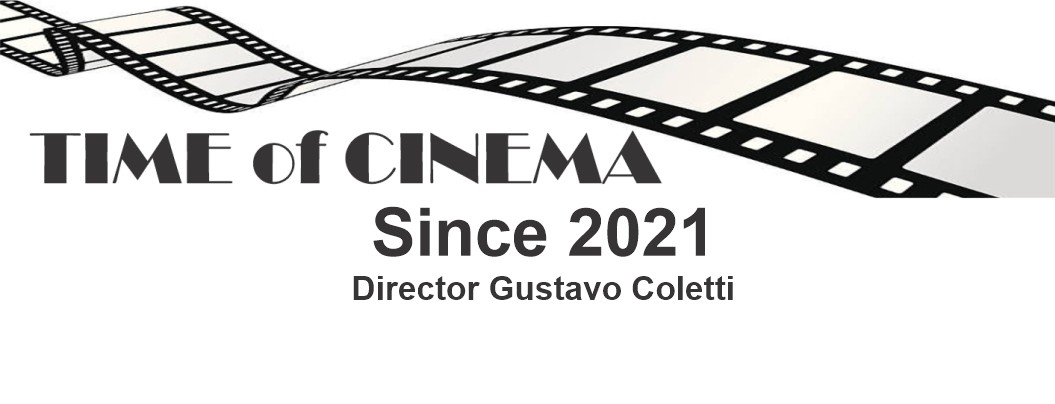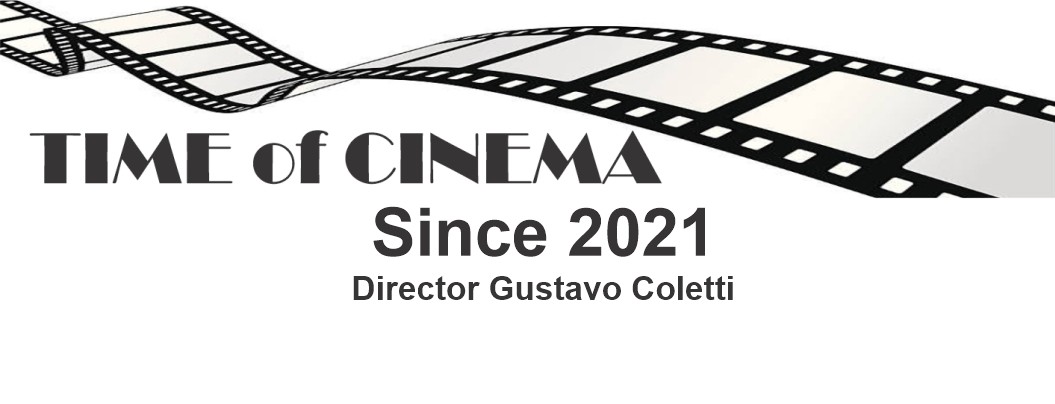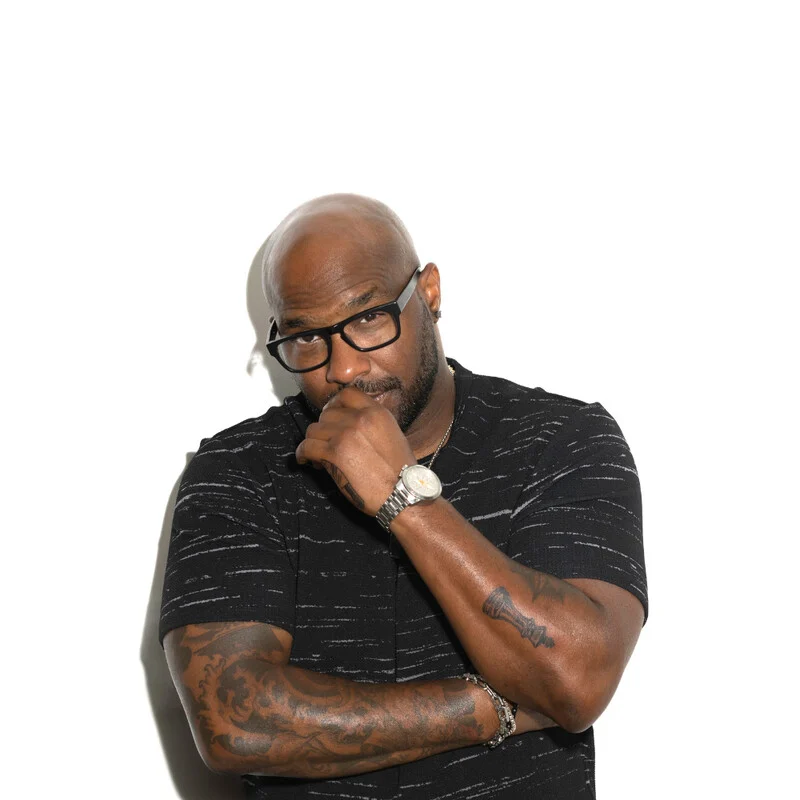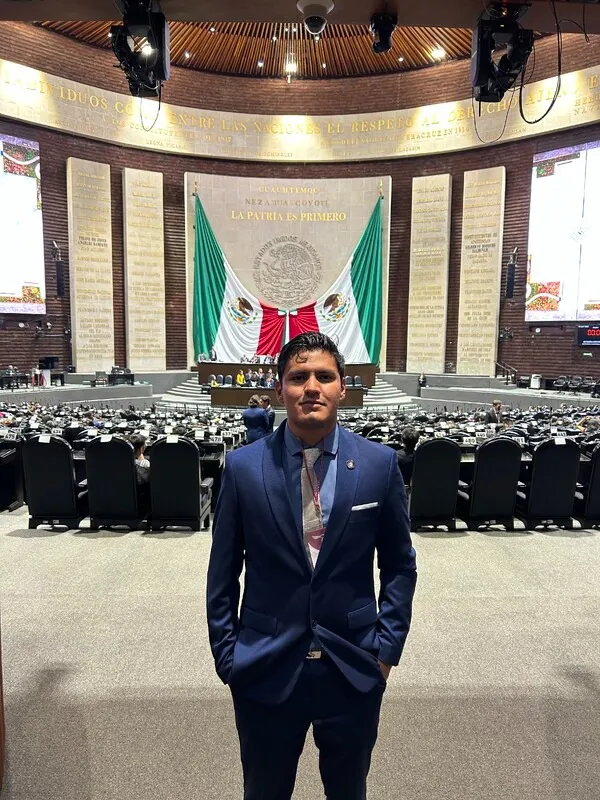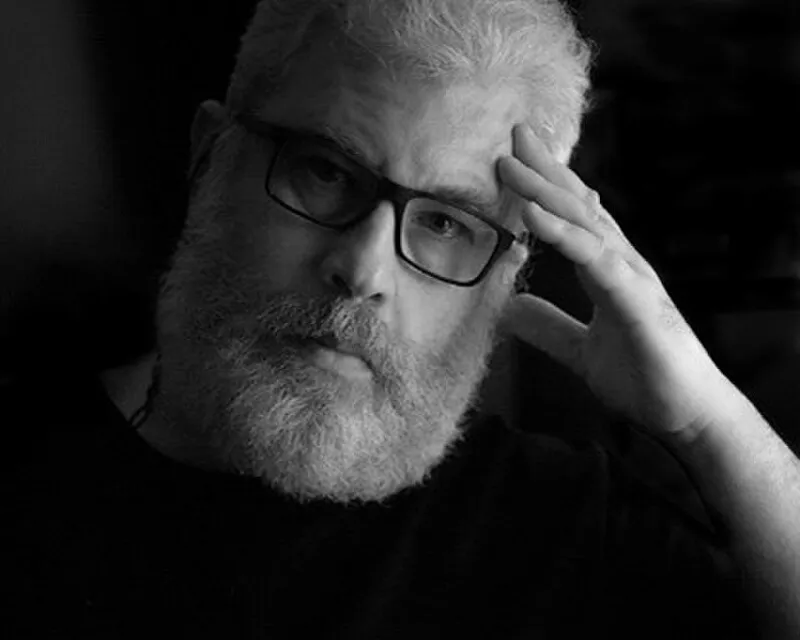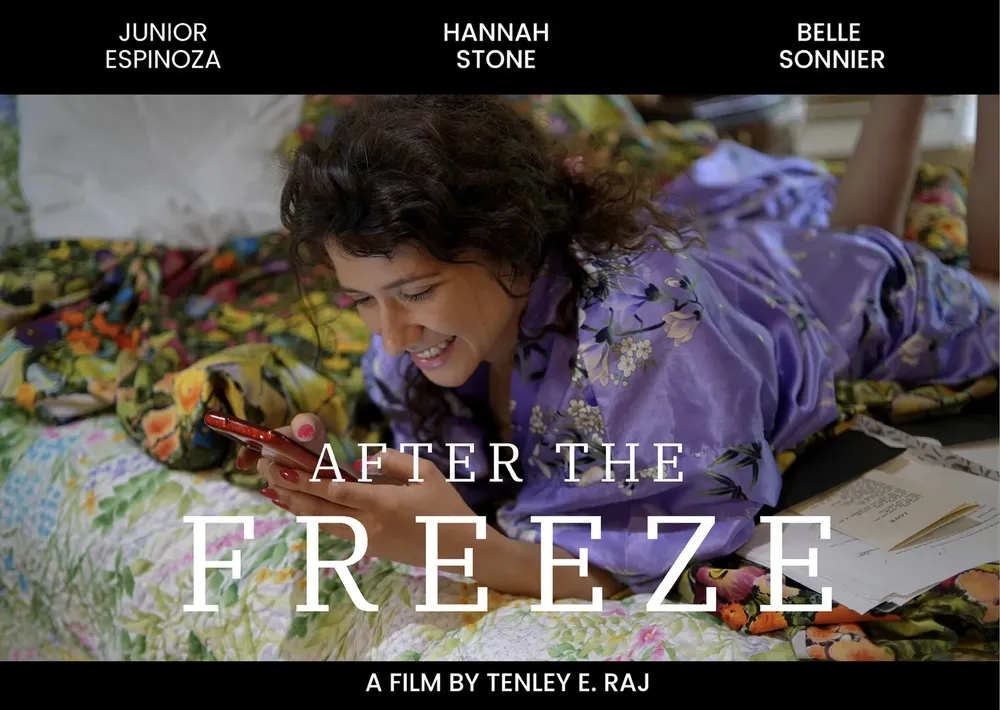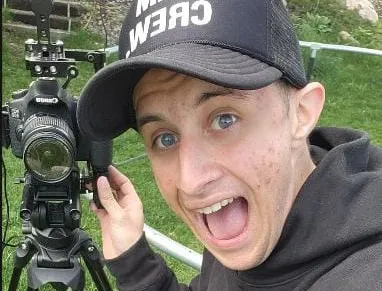
“The Wobblies”: Iconic Film on the Industrial Workers of the World (IWW) Is Rereleased for May Day
INTERVIEWS Ammy Goodman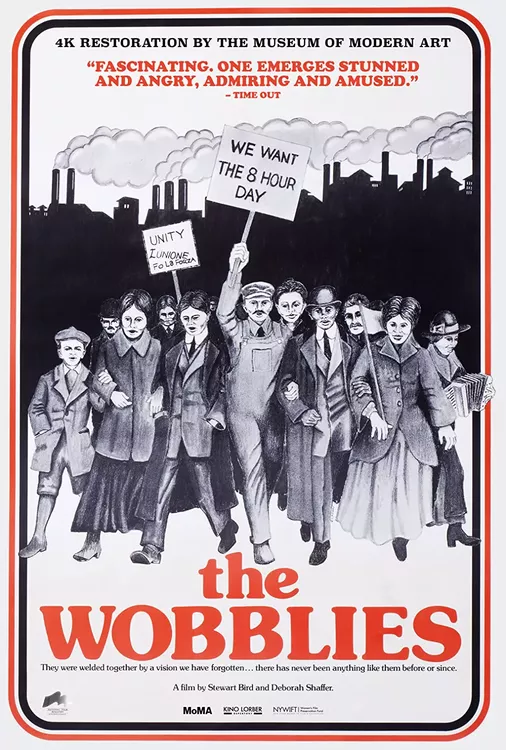
The landmark 1979 labor documentary, “The Wobblies,” has been restored and rereleased for May Day, International Workers’ Day. The film details the history of the Industrial Workers of the World — a radical union whose members are also known as Wobblies — and their inclusive fight to organize “unskilled” workers, secure fair wages and enshrine the eight-hour workday in the early 20th century before they were targeted and repressed by the FBI during World War I. It features interviews with former Wobblies still alive in the 1970s. Deborah Shaffer, who co-directed the film with Stewart Bird, says the IWW “was founded in 1905 out of necessity” because no existing unions represented so-called unskilled labor. “The workers had no representation at all, and they were being expected to work seven days a week, 12-hour days, no breaks, no meals, underpaid, overworked,” she says. “Conditions were terrible and intolerable.” The high-definition rerelease of “The Wobblies” comes after the Library of Congress added it to the National Film Registry in 2021.
Transcript
This is a rush transcript. Copy may not be in its final form.
AMY GOODMAN: “There Is Power in a Union,” written by Joe Hill, from the 1979 documentary The Wobblies. Among the voices you just heard in that musical break, Alice Gerrard, Joe Glazer and Mike Seeger, the half-brother of Pete Seeger.
AMY GOODMAN: This is Democracy Now!, democracynow.org, The War and Peace Report. I’m Amy Goodman.
This Sunday, much of the world will celebrate May Day, International Workers’ Day, amidst a wave of union organizing in the United States that includes scores of Starbucks stores and the newly formed Amazon Labor Union. We end today’s show with a film that tells the story of the first union for all workers. The Wobblies is a documentary that came out in 1979 and has just been restored and entered into the Library of Congress’s National Film Registry.
PROSECUTOR: What’s your name?
SAM SCARLETT: Sam Scarlett.
PROSECUTOR: What’s your religion?
SAM SCARLETT: The IWW.
PROSECUTOR: That ain’t no religion!
SAM SCARLETT: It’s the only I got.
PROSECUTOR: Are you a citizen?
WOBBLY 1: No, I am an industrial worker of the world!
JACK MILLER: The one who is a working man could not be denied membership for any reason, as long as he was an actual wage worker. Race, creed, color, any — for any reason.
VIOLET MILLER: Sex.
JACK MILLER: Sex, whatever.
IRMA LOMBARDI: Industrial Workers of the World. “Work, good wages and respect.” That’s what they wanted for the workers, to be people, not nobody.
ROGER BALDWIN: In the grain fields, we harvested every major grain that grew in North America — wheat, oats, barley, rye.
WOBBLY 2: The heat was 110 to 112 to 114 degrees temperature out in the sun. And you could look across the plains and see a freight train from miles away.
AMY GOODMAN: The Wobblies, featuring oral histories with elderly former members of the IWW, who were in their eighties and nineties in the 1970s. It’s narrated by the late Roger Baldwin, one of the founders of the American Civil Liberties Union, who died in 1981. This is another clip.
ROGER BALDWIN: But unskilled labor had almost no representation whatever. The AF of L didn’t take in unskilled workers. And they had no voice to speak for them. It was these conditions that were largely responsible for the founding of the Industrial Workers of the World.
PREAMBLE: The working class and the employing class have nothing in common. Between these two classes a struggle must go on until the workers of the world organize as a class, take possession of the earth and the machinery of production, and abolish the wage system.
ROGER BALDWIN: I remember reading of the founding convention of the Industrial Workers of the World, which took place in Chicago in 1905 and headed by men who were already well known to newspaper readers — “Big Bill” Haywood, for instance, of Western Federation of Miners, and Eugene V. Debs, candidate for president on the Socialist Party ticket, and Mother Jones and many others.
“BIG BILL” HAYWOOD: Fellow workers, this is a Continental Congress of the working class. I don’t give a snap of my fingers whether skilled workers join this union or not. We don’t need them. There are 35 million workers in this country that aren’t organized yet. What we want to establish at this time is an organization that will open wide its doors to every man or woman that earns his livelihood by brain or muscle.
AMY GOODMAN: The words of IWW leader “Big Bill” Haywood in the film The Wobblies.
For more, we’re joined by the Academy Award-winning filmmaker Deborah Shaffer, who co-directed this remarkable documentary with Stewart Bird in 1979. It’s just been restored and screens nationwide on May Day, this Sunday, online at the end of May.
Deborah, welcome to Democracy Now! It’s an astounding film. Tell us the story of the Wobblies.
DEBORAH SHAFFER: Well, the Wobblies themselves was a union, as you heard in the clip, that was founded in 1905 out of necessity, really. The workers at that time, unskilled workers, had no unions. There was no such thing. There was an — the AF of L existed, but they only admitted and organized skilled workers, mostly white, mostly male — you know, bricklayers, masons, people with highly skilled jobs. So the masses of industrial workers — remember, this was the early days of industrialization in the United States. The textile mills were booming. The lumber mills were booming. The cotton gins were booming. The workers had no representation at all. And they were being expected to work seven days a week, 12-hour days, no breaks, no meals, underpaid, overworked. Children were working. You know, conditions were terrible and intolerable.
AMY GOODMAN: I wanted to go back to your film. In this clip, we hear from Black longshoreman James Fair after, well, one of the founders of the ACLU, Roger Baldwin.
ROGER BALDWIN: In the ports of the Atlantic and of the Gulf Coast, Black and white workers were organized in the same unions, which the AF of L and the established unions did not permit.
JAMES FAIR: Well, we were on the farm, and conditions were just bad. My parents heard of Pennsylvania, and, so to speak, why, you could make up money out of the street. And they decided, you know, to come North. Getting jobs, as far as the Negroes or Blacks is concerned, was pretty rough. And the IWW was the only thing that was accepting Negro or Black workers, you know, without — you know, I mean, freely. We had Fletcher. He was a Negro. And we had one Nef. He was white, but he was a very dedicated union man, both of these men. We would have our pep talks and whatnot. And Fletcher, after he’d make a speech or something or another, “Solidarity, all for one, and one for all.”
We were given the roughest jobs, of course. They would have a rough job or even on deck, and if a white came along, why, I didn’t have no job. I’d have to go back to something else. The work was so rough. We had to use hand trucks, and two men would load that truck with freight, and we’d have to truck it over very rough floors to the side of the ship to be loaded. We worked 10 hours. People were getting hurt one after another, just going to the hospital. We had no medical or safety rules or anything like that.
When the contract ran out, we’d go in for a contract. Nothing doing. We had to go out on strike. The results of that, while we were on strike, people were transported from different parts of the country to break strikes. Some would be having, you know, guns, as same as they were the law. And there would be these vans going down. They would be escorted by police escorts on motorcycles. And a striker would have as much chance before the strikebreakers as a rabbit would have before a gunner.
AMY GOODMAN: Black longshoreman James Fair. I want to go to another clip of The Wobblies. The IWW was creative with its tactics. In this clip, we hear from migratory workers Joe Murphy and Jack Miller.
ROGER BALDWIN: Another one of the IWW tactics was sabotage, which was anything from slowing down on the job to threatening violence, which they didn’t practice, as a matter of fact. But it took a scared employer into thinking they did.
JOE MURPHY: If Freedom’s road seems rough and hard,
And strewn with rocks and thorns,
Just put your wooden shoes on, pard,
And you won’t hurt your corns.
To organize and teach, no doubt,
Is very good — that’s true,
But still you cannot get along without
The Good Old Wooden Shoe.
The wooden shoe is a symbol of the sabot. The sabot was the French. And a French worker, when he wanted to rest, he’d throw his sabot in the machinery and would break it down. And that’s where the word “sabotage” came from.
JACK MILLER: Now, if you want to know what sabotage really means, it don’t mean as the French used the word “sabot,” throw a wooden shoe into the machine. Nor does it mean burning down sawmills, for what is the reason — what would be the sense in burning down your source of employment?
INTERVIEWER: What did sabotage mean?
JACK MILLER: The conscious withdrawal of efficiency.
AMY GOODMAN: I mean, that’s another clip from The Wobblies. It is amazing, Deborah Shaffer, that you found these workers, now in their — at the time — I mean, now many of them are dead, of course — in their eighties and nineties. Had a hard time finding coal miners — right? — because they were mostly all dead.
DEBORAH SHAFFER: Yeah, I think our most — finding James Fair, the longshoreman from Philadelphia, was our most challenging. Remember, we made this film in the late '70s. There was no internet. We couldn't put out a call through social media. We actually created a leaflet that we had people hand out on the docks in Philadelphia, a physical, like, color-printed paper leaflet, saying, “Was your grandfather a Wobbly?” Because we knew that there were — there had to be still Black workers living in Chicago — in Philadelphia who had been part of the union. And we eventually found James through, I think, a church that he was a member of, a minister knew and led us to him.
And so, the search for the people was — we weren’t sure, when we started, how many people we would find. We knew we had a few in the area around New York. And we just didn’t know if we’d find, you know, 10 or 20 still alive, I mean, in 1977. The union had been founded in 1905. So, we were — you know, people, as you said, were already very elderly. They’re all gone. I mean, everybody.
AMY GOODMAN: I want to go back to another clip. I mean, this film is so good. The archival footage is unbelievable, as well. In this clip, it’s what? 1917, and World War I had begun. We hear from Roger Baldwin, yep, the founder of the American Civil Liberties Union and narrator of this, and Wobblies Jack Miller, Nels Peterson and Tom Scribner. It begins with the words of then-American Federation of Labor President Sam Gompers.
SAMUEL GOMPERS: This is the people’s war, labor’s war. The final outcome will be determined in the factories, the shops, the mines, the farms, the production and transportation agencies of the various countries. The workers have a part in this war equal with our fighting boys.
ROGER BALDWIN: The American Federation of Labor, which, of course, was the established union and are patriotic, engaged in an agreement with the government not to strike during war. The IWW would not subscribe to that. War production required immense quantities of timber, and the IWW really controlled the great timber areas of the Northwest, therefore attracting the government’s attention, particularly when the IWW engaged in strikes against the conditions under which logging was done.
TOM SCRIBNER: The general strike developed in the summer of 1917, and it spread up and down the Pacific Coast. And it was led by the IWW.
JACK MILLER: In the summer of 1917, the woods were almost solidly organized. The lumberjack, the most individualistic worker that you can think of, the big man idea, Paul Bunyan complex. Now the solidarity was such, not one logger remained in the camps wherever we could get in communication with that camp to tell them that a strike was on.
NELS PETERSON: They tried every way to break up the strike. They sent soldiers in there, soldiers that had never had an ax in their hand. They didn’t know — they’d get lost if they walked around a big stump.
ROGER BALDWIN: They organized the Spruce Division. That’s the way they used the Army as strikebreakers.
NELS PETERSON: They called them the Loyal Legion of Loggers. We called them the lousy long-legged loggers — wave the flag with one hand and rob you with the other.
AMY GOODMAN: Another clip of The Wobblies. The director, Deborah Shaffer, is with us. There is so much to talk about. But if you could talk about what happened to them in World War I, the Palmer Raids, and their relationship with the more establishment AFL?
DEBORAH SHAFFER: Well, the AFL wanted absolutely nothing to do with the IWW, of course. They saw them as a threat, although I have to say that later — skip over to the end of it, what you’re asking me about — the IWW really was the precursor to the CIO. Many, many IWW organizers went on to become organizers for the CIO, the Congress of Industrial Unions, which did represent unskilled workers and was organized in the ’30s.
The Wobblies were put out of business by the federal government. There’s just no other way to put it. I learned how — in the process of making the film, how really deep and dreadful the repression from the government was, similar to — like, lately we’ve seen there was a film a couple of years ago about the murder of Fred Hampton, which had been organized by the FBI. And this was a very similar attack on the IWW organized by, you mentioned, A. Mitchell Palmer, who was the head of the Federal Bureau of Investigation at the time. His eager beaver young assistant was J. Edgar Hoover. And they arrested people right and left. They deported any immigrant workers. Anybody who didn’t have their citizenship papers were just put on boats and deported out of the U.S., never to be allowed to return. A hundred and one members, and mostly leadership people, all across the country were arrested in 1917 during the war. They were arrested and charged with sedition, put in jail. In the end, it was a sham trial. And they were —
AMY GOODMAN: We have 15 seconds.
DEBORAH SHAFFER: They were charged with — they were given 20 years in prison for having organized the IWW. I just want to say I find, shockingly, the film is more relevant now than it was when we released it in '79. That's what surprises me.
AMY GOODMAN: And it’s being put into the Library of Congress’s National Film Registry, which is incredible, soon to be available to everyone, opening on May Day, which is Sunday. That does it for today’s show. Deborah Shaffer, I want to thank you for being with us, co-director with Stewart Bird of the 1979 documentary The Wobblies, that’s just being released once again. This is Democracy Now!, democracynow.org. Happy May Day, everyone! I’m Amy Goodman. Stay safe.
